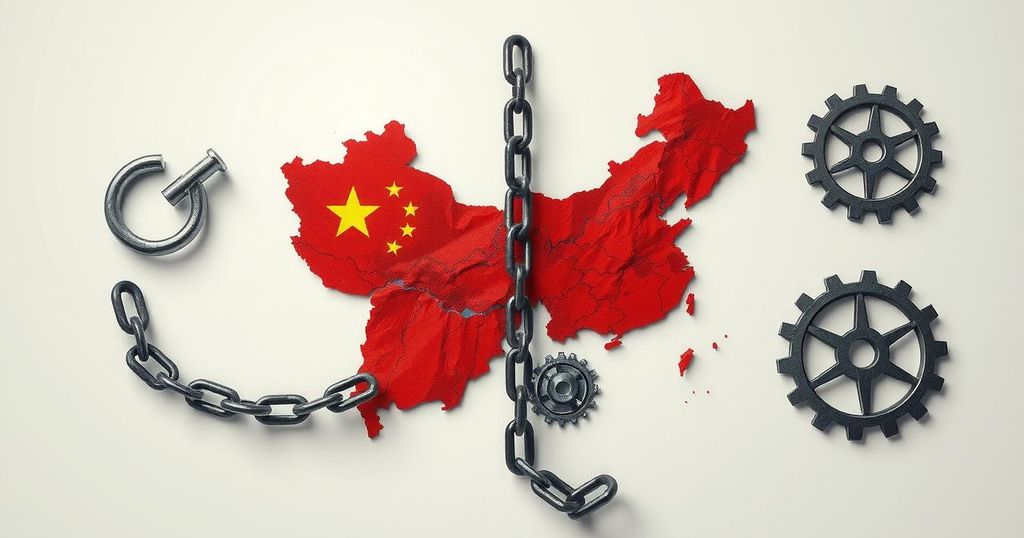President Trump’s recent proposal to ‘take over’ the Gaza Strip, suggesting relocation of Palestinians and redevelopment, faces widespread criticism and protests from Democrats and human rights advocates. The plan has been labeled as potentially akin to ethnic cleansing, inciting harsh reactions from both parties and international stakeholders. Middle East envoy estimates show Gaza may be uninhabitable for 10-15 years, complicating the feasibility of Trump’s bold claims of revitalization.
United States President Donald Trump has proposed a controversial plan to take “ownership” of the Gaza Strip, asserting that this could transform the area into a desirable location, reminiscent of the “Riviera of the Middle East.” During a press conference alongside Israeli Prime Minister Benjamin Netanyahu, Mr. Trump expressed intentions to relocate Palestinians to neighboring countries such as Jordan and Egypt, suggesting that the U.S. would oversee the redevelopment of Gaza, which he characterized as a “symbol of death and destruction.”
This proposal has ignited significant backlash, particularly from members of the Democratic Party, who have condemned it as a potential act of ethnic cleansing. Congresswoman Rashida Tlaib criticized the plan on social media, stating, “This president is openly calling for ethnic cleansing while sitting next to a genocidal war criminal.” Alongside her, various protests took place outside the White House, highlighting widespread disapproval of the administration’s stance.
U.S. Middle East envoy Steve Witkoff reported the dire living conditions in Gaza, indicating the territory may be uninhabitable for the next 10 to 15 years. He noted the extensive damage inflicted, with a substantial lack of essential resources like water and electricity. Witkoff elaborated on the prolonged timeline required for rebuilding efforts in the region.
Trump’s plan has also drawn criticism from certain Republicans, including former Congressman Justin Amash, who articulated concerns over potential military intervention and labeled the proposal as reckless. He emphasized the moral implications involved in forcibly relocating individuals from Gaza, stating, “No American of good conscience should stand for this.”
The global response to Trump’s proposal has been mixed, with nations such as Saudi Arabia clearly rejecting the notion of displacing Palestinians. They have reaffirmed their support for a viable Palestinian state as a prerequisite for establishing relations with Israel. Trump’s advocacy for relocating Palestinians has raised serious questions about human rights violations and adherence to international law.
The U.S. president has not ruled out the possibility of deploying military forces to Gaza and claimed to have acquired support from unspecified leaders. Nevertheless, skepticism remains among observers regarding the viability and consequences of such an action. Netanyahu, meanwhile, endorsed Trump’s perspective, noting that his vision for Gaza could significantly reshape historical narratives in the region.
The ongoing conflict in Gaza has historically involved a complex web of political, territorial, and humanitarian issues that have persisted for decades. President Trump’s recent proposal emerges against a backdrop of previous U.S. policies regarding the Israeli-Palestinian conflict, including fluctuating support for a two-state solution. Injuries and deaths from ongoing hostilities, compounded by political instability, have stunted development efforts in the region. Growing criticism from various factions indicates a deep-seated opposition to proposed U.S. interventions, reflecting the sensitivity and complexity of the situation.
In summary, President Trump’s proposal for U.S. ownership of Gaza has sparked considerable controversy and criticism from both political allies and opponents, raising concerns regarding potential ethnic cleansing and violations of international law. The proposal reflects the complexities surrounding U.S. foreign policy in the region, particularly regarding the Israeli-Palestinian conflict and humanitarian implications for the displaced Palestinian population. As protests and legislative backlash grow, the administration may need to reassess its approach to avoid escalated tensions across the Middle East.
Original Source: www.theguardian.com




